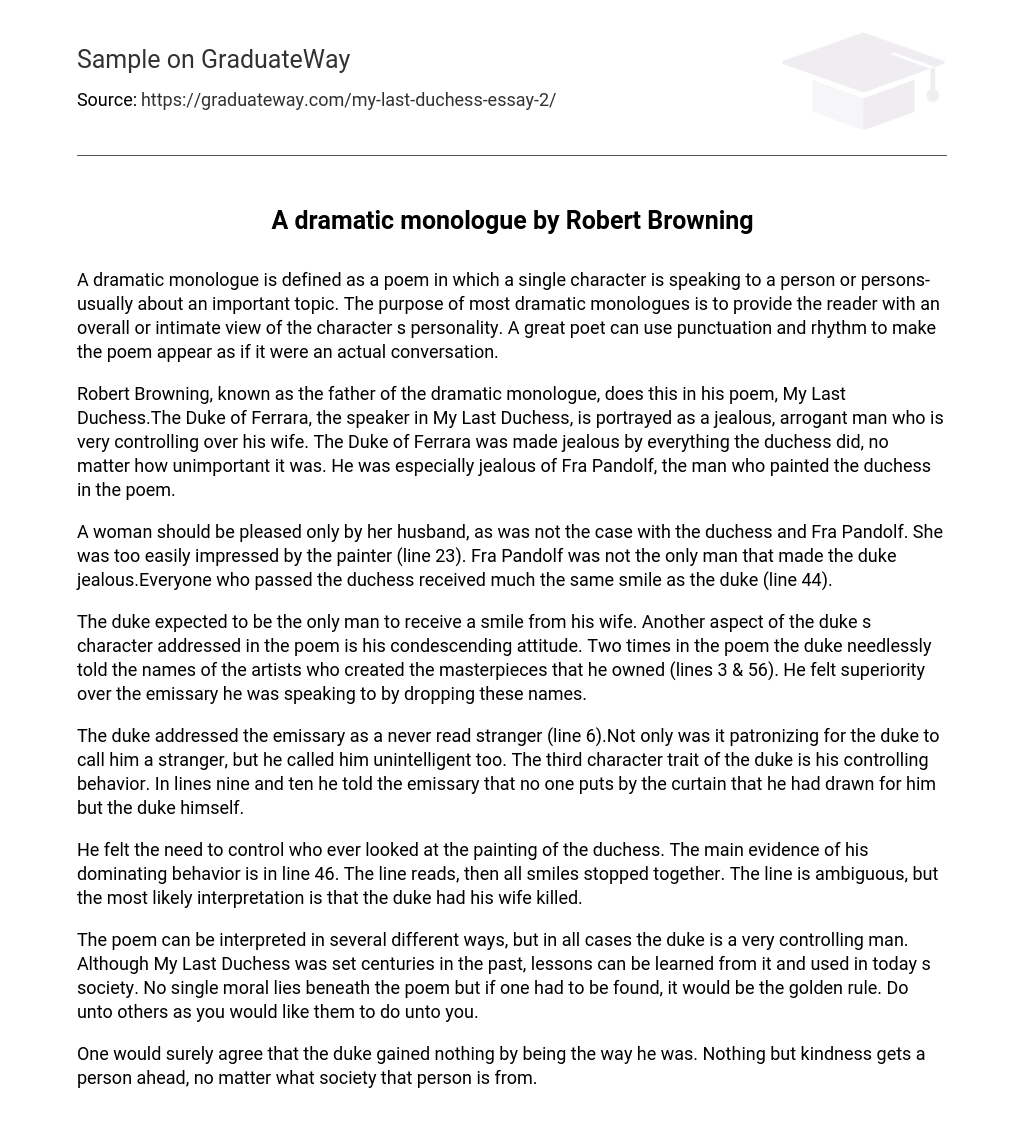A dramatic monologue is a type of poem where a single character speaks to one or more individuals, usually discussing a significant subject. The main objective of most dramatic monologues is to give the reader insight into the character’s personality, either in a general sense or through an intimate perspective. A skilled poet can employ punctuation and rhythm to create the illusion of an authentic conversation within the poem.
Robert Browning, recognized as the father of the dramatic monologue, demonstrates this technique in his poem, My Last Duchess. The poem portrays the Duke of Ferrara as a jealous and arrogant man who exerts excessive control over his wife. Despite the insignificance of her actions, the Duke becomes jealous of everything the duchess does. Moreover, he particularly resents Fra Pandolf, the artist responsible for painting the duchess within the poem.
The duchess was not pleased only by her husband, contrary to what is expected of a woman. She was easily impressed by the painter, Fra Pandolf. Moreover, the duke was jealous of any man who received the same smile from the duchess as he did.
In the poem, the duke displays his expectation of being the sole recipient of his wife’s smile. Additionally, his condescending attitude is emphasized as he willingly shares the names of the artists responsible for his masterpieces, asserting his superiority over the emissary.
The duke’s address to the emissary is condescending and reveals his opinion of him as an ignorant stranger (line 6). Furthermore, the duke’s controlling nature is evident in lines nine and ten, where he asserts that only he has the authority to move the curtain he had placed for the emissary.
The duke had a desire to control anyone who viewed the painting of the duchess. His dominating behavior is evident in line 46, which states “then all smiles stopped together.” This line can be interpreted as indicating that the duke caused his wife’s death.
The poem, My Last Duchess, can be interpreted in various ways, all of which depict the duke as a highly controlling individual. Despite being set in the distant past, valuable lessons can still be derived from the poem and applied in modern society. Although no specific moral is explicitly stated, the underlying principle of treating others as one would like to be treated can be found within the poem.
One would certainly acknowledge that the duke did not benefit from his behavior. Kindness is the only quality that helps a person succeed, regardless of their societal background.





